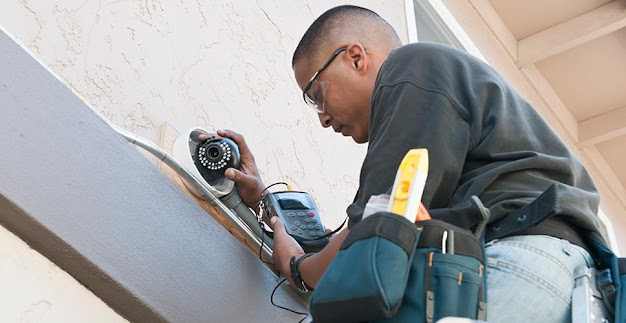5 New Home Safety Upgrades that Could Save Your Life
Whether you’re in the midst of moving or have just settled into a new home, you’re probably too busy swimming in unpacked boxes and paint color swatches to focus on what really matters. You probably haven’t had a chance to think about home safety.
Trust us, we’re not judging. We’re ready to help you find peace of mind. Here are five tips to help mark you and your home as safe:
1. It’s not Smoke and Mirrors — It’s Safety
First things first: Ensure your smoke alarm is working. Don’t assume it’s automatically on duty because somebody was just living in your home.
Smoke alarms can save lives. According to the National Fire Protection Association (NFPA), working smoke alarms cut the risk of dying in a home fire in half. Keyword: working.
Contrarily, they report that three in every five home fire deaths result from fires in homes with either no smoke alarms or no working smoke alarms. Takeaway: A dead smoke alarm is as good as no smoke alarm. To ensure your alarm is properly working, check its batteries once a month.
Alarm reaching the 10-year mark? It’s time for a new one. To assess the age of your smoke alarm, locate the date it was manufactured on the inside. This is the date to note — not the date the alarm was purchased or installed.
If you’re moving into a newer home, chances are your smoke alarms are interconnected: Ff one goes off, all go off, and you’ll hear it wherever you are at home. Moving into an older home? Upgrade the alarms to interconnect. While you’re at it, put your fire extinguisher in a prominent place.
2. No Cause for Alarm — Unless you Forget This One
Less on most people’s radar is the carbon monoxide (CO) alarm. This detector alerts homeowners if unsafe levels of CO are present. Because CO is odorless, colorless, and tasteless, it’s commonly referred to as the “silent killer.”
The Centers for Disease Control and Prevention (CDC) reports approximately 50,000 people visit the ER each year due to accidental CO poisoning, and of those, at least 430 die from it.
A CO alarm installation will do the trick, requiring a replacement every five to seven years. Many smoke alarms include CO detectors, so if you’re in the market, opt for a two-in-one.
In the name of all things CO-related, also keep this in mind: Don’t sit for too long in your car while it’s running in the garage (especially with the garage door closed). Though it’s easy to get sidetracked while parked and on the phone, this is another way that CO can creep up on you.
3. Feeling Exposed? These’ll Have you Covered
Whether you have a fence or not, creating a plant barrier can up your privacy factor and add lushness.
However, you’ll want to garden strategically so you’re deterring intruders instead of inviting them to hide within your home’s perimeter. The best plants for discouraging break-ins? Hardy (tough to infiltrate), sharp (risking cuts that leave behind DNA), and noisy (igniting fear of witnesses).
There’s a safety cut-off when it comes to height: Hedges and bushes should be three feet or less. They’ll give you privacy without decreasing visibility so much that it creates a prowler launch pad.
Continue reading the original article here: 5 New Home Safety Upgrades that Could Save Your Life
Related Article Here: https://www.dunwoodylocksmith.org/services/residential.html
Iron Clad Locksmith
24 Hour Emergency Locksmiths
Hours: Monday through Sunday, all day
Dispatch Address: 100 Ashford Gables Dr, Dunwoody, GA 30338
Email: info@dunwoodylocksmith.org
Phone: (404) 902-6871
Manta: http://www.manta.com/c/mx5rtqq/iron-clad-locksmith
Hotfrog: https://www.hotfrog.com/company/1099439416700928/iron-clad-locksmith/dunwoody/doors





Comments
Post a Comment